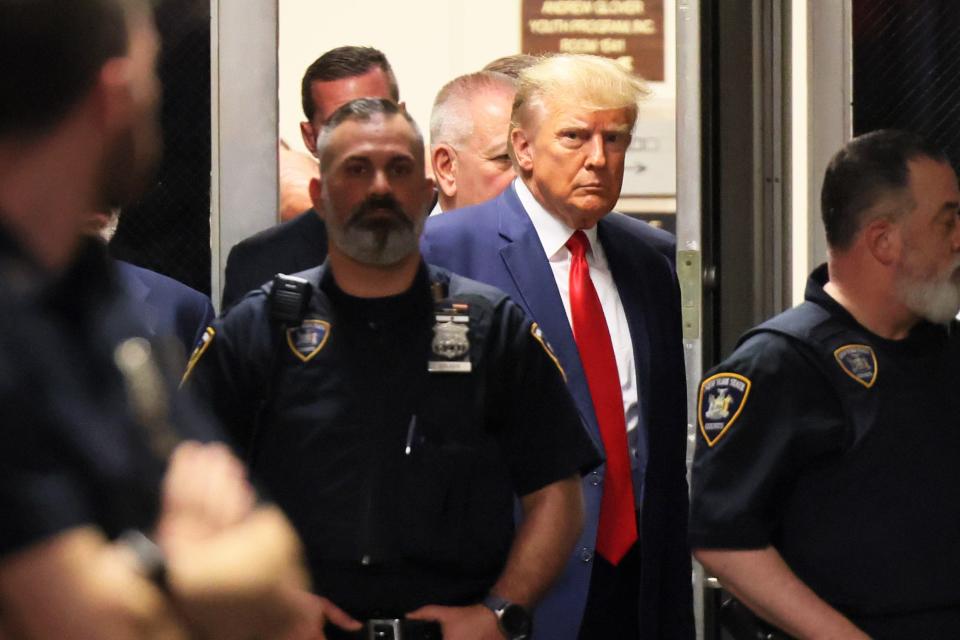Could Trump get a third term as President? We have that answer for you. | Opinion
- Oops!Something went wrong.Please try again later.
Q. Since it would be non-consecutive with his previous term as President, can Donald Trump serve two more terms?
A. The U.S. Constitution sets the requirements necessary to serve as President. Article II, section The Constitution lists only three qualifications for the Presidency in Article II Section 1. The President must be a natural born citizen, at least 35 years of age and must have lived in the United States for at least 14 years. For most of our history, Presidents could serve as many terms as they could get elected and re-elected to by the Electoral College.
However, George Washington set a standard when he chose not to run after having served two terms. In explaining why he would not run for re-election, Washington wrote in his Farewell Address, “I have the consolation to believe that, while choice and prudence invite me to quit the political scene, patriotism does not forbid it.” Washington was confident that the system and people could persevere without him. He saw a future where “[t]he free constitution, which is the work of your hands, may be sacredly maintained; that its administration in every department may be stamped with wisdom and virtue.”

More from the Civics Project: Why the way we pick presidential nominees kind of makes sense | Opinion
The example of leaving after two terms proved to be persuasive. It was not until the election of Franklin Delano Roosevelt to a third term in 1940 that the precedent was broken. Roosevelt was not the first to try for a third term, but he was the first who succeeded. He went on to be elected to a 4th term in 1944 but died 2 months and 23 days into that term.
Motivated in part by Roosevelts’ length of time in office, the 22nd Amendment was ratified in 1951 limiting Presidents to two terms. The 22nd Amendment reads, in part: “No person shall be elected to the office of the President more than twice, and no person who has held the office of President, or acted as President, for more than two years of a term to which some other person was elected President shall be elected to the office of President more than once.”
More from the Civics Project: Does immunity apply to former presidents? | Civics Project column
Essentially, a person can be elected twice and only twice. The fact that there might be a gap between the 1st and 2nd terms does not change the limitation. Since Donald Trump was elected in 2016, he is only eligible to serve one additional term. Barack Obama and George W. Bush, having both been elected to the Presidency twice, are barred from serving again under the 22nd Amendment. For that to change, the 22nd Amendment would need to be repealed, which would be difficult and highly unlikely.

Serving two non-consecutive terms is unusual. Only Grover Cleveland managed it serving as president from 1885 to 1889 and from 1893 to 1897. There is a reason it is uncommon. It is difficult for a political leader to leave the political life and then recapture the momentum to win the highest office in the land. However, it can be done — but only for one more term.
Kevin Wagner is a noted constitutional scholar and political science professor at Florida Atlantic University. The answers provided do not necessarily represent the views of the university. If you have a question about how American government and politics work, email him at kwagne15@fau.edu or reach him on Twitter/X @kevinwagnerphd.
This article originally appeared on Palm Beach Post: Civics explained: Would Donald Trump be eligible for a third term?

